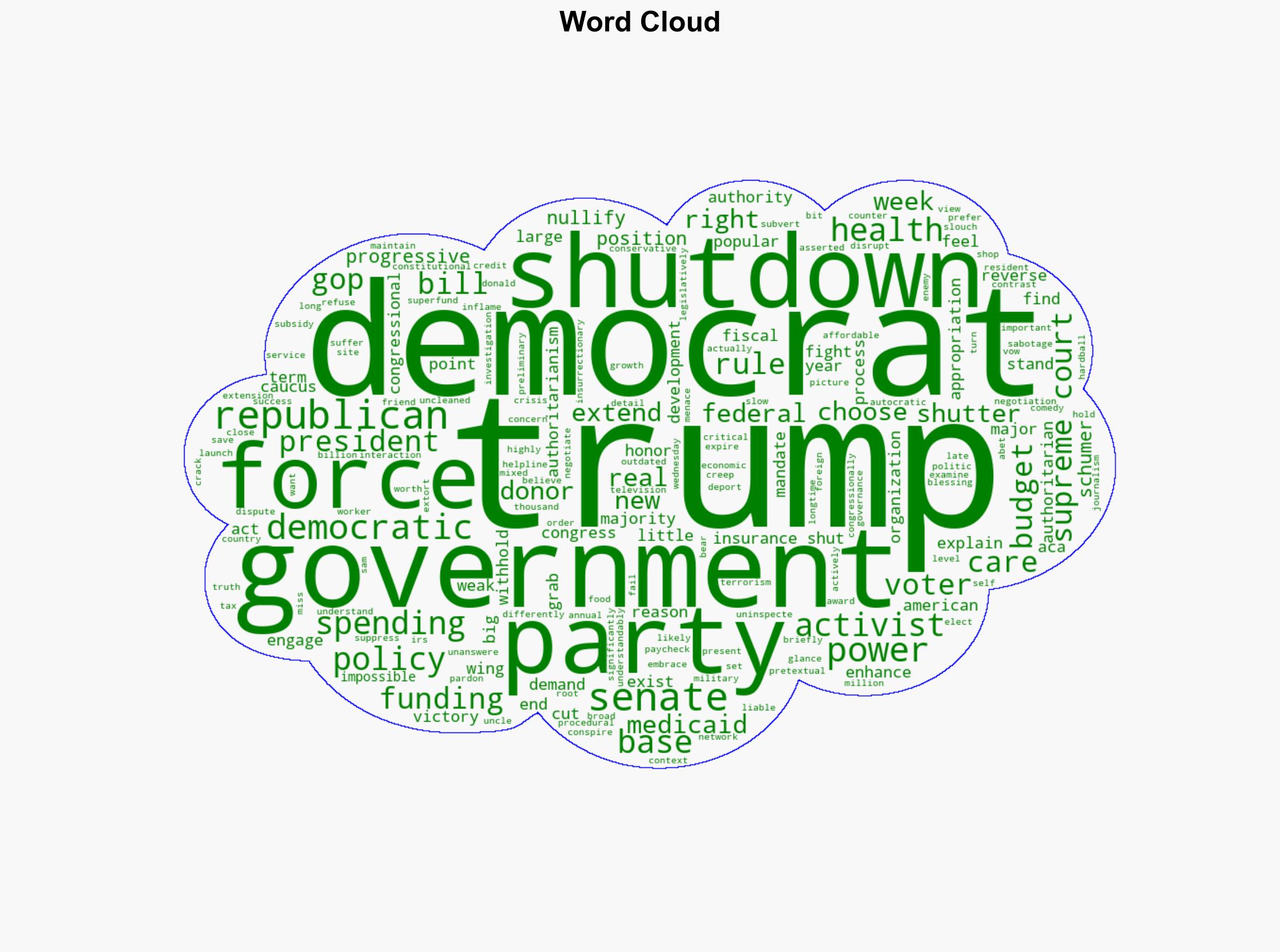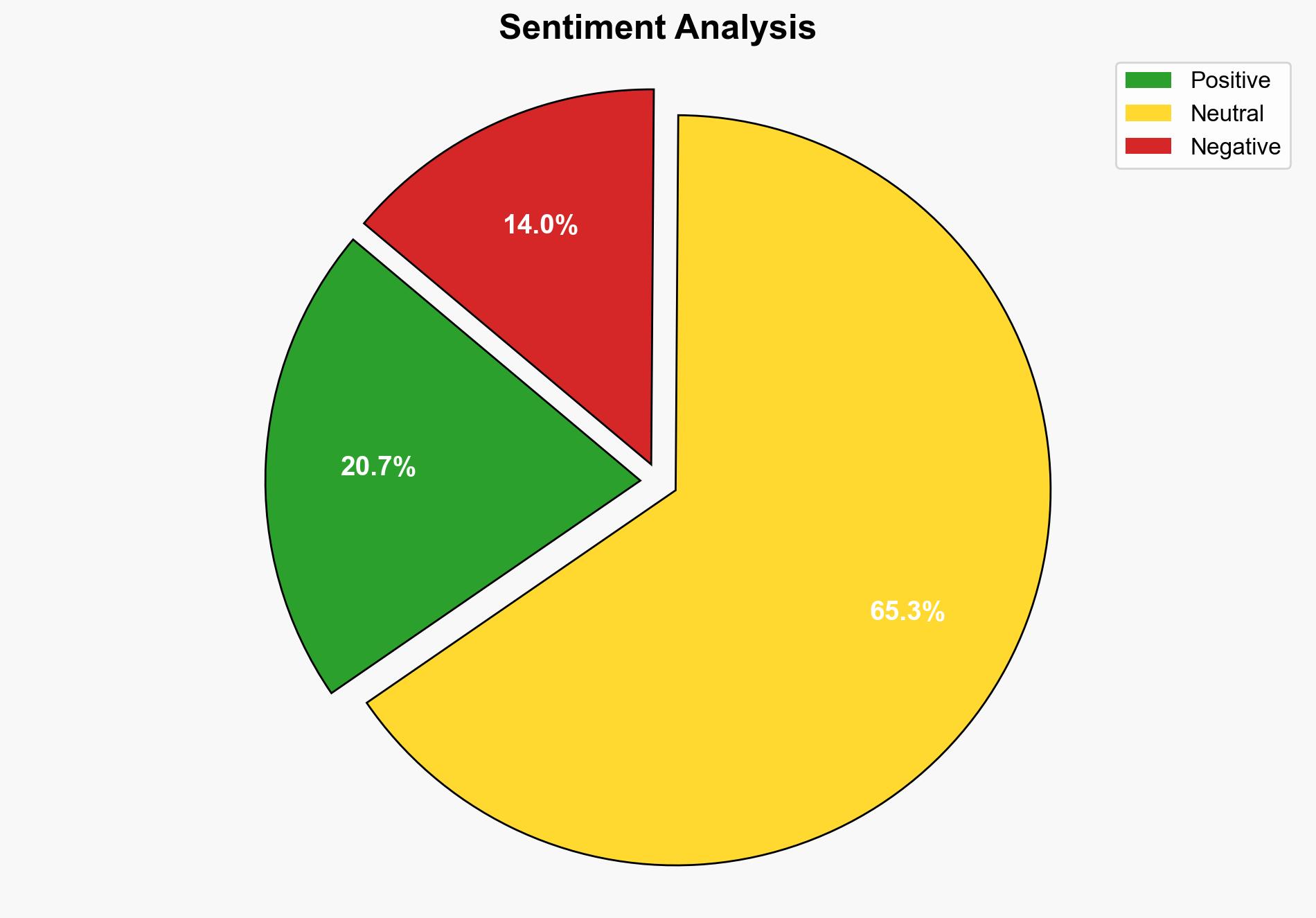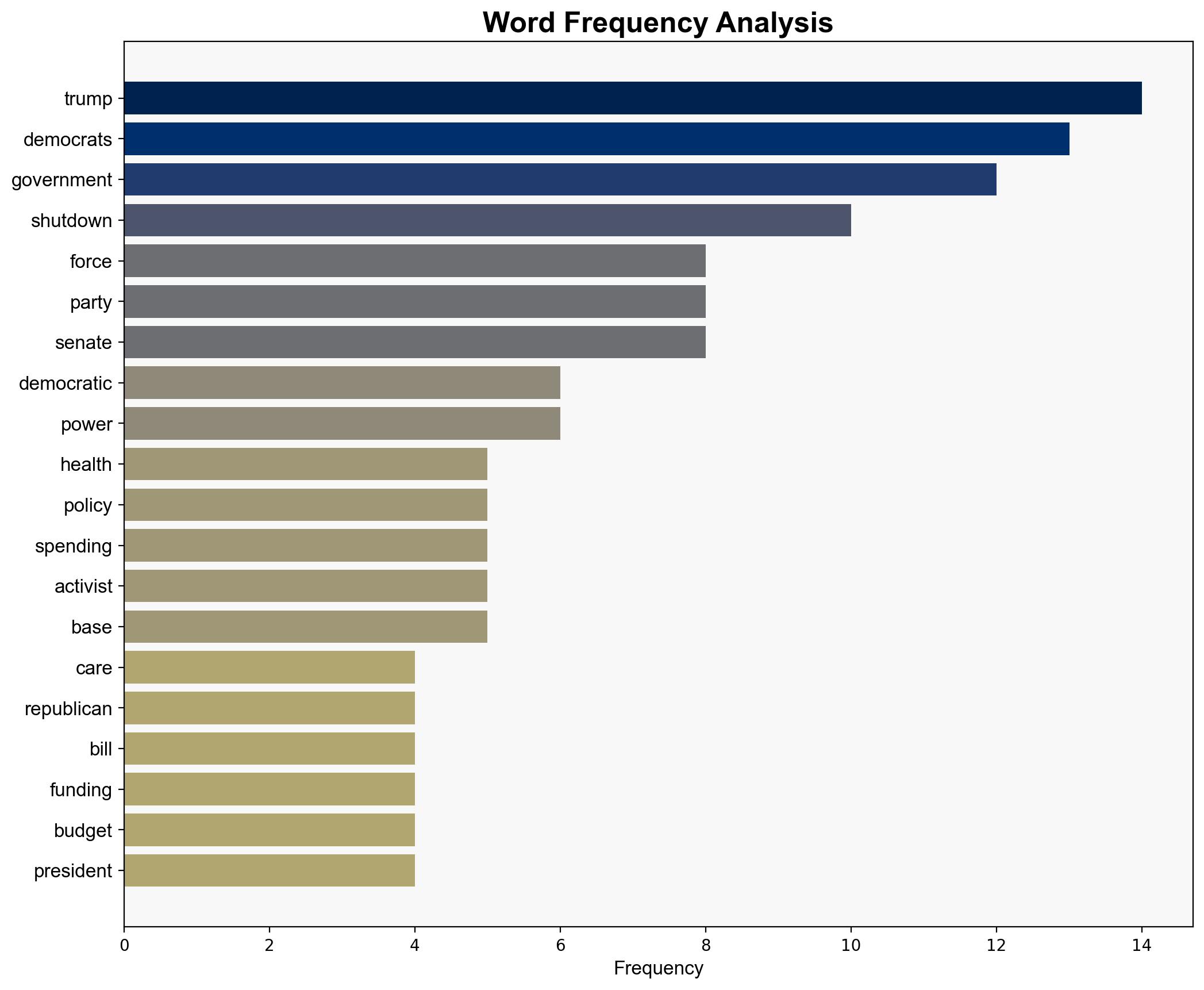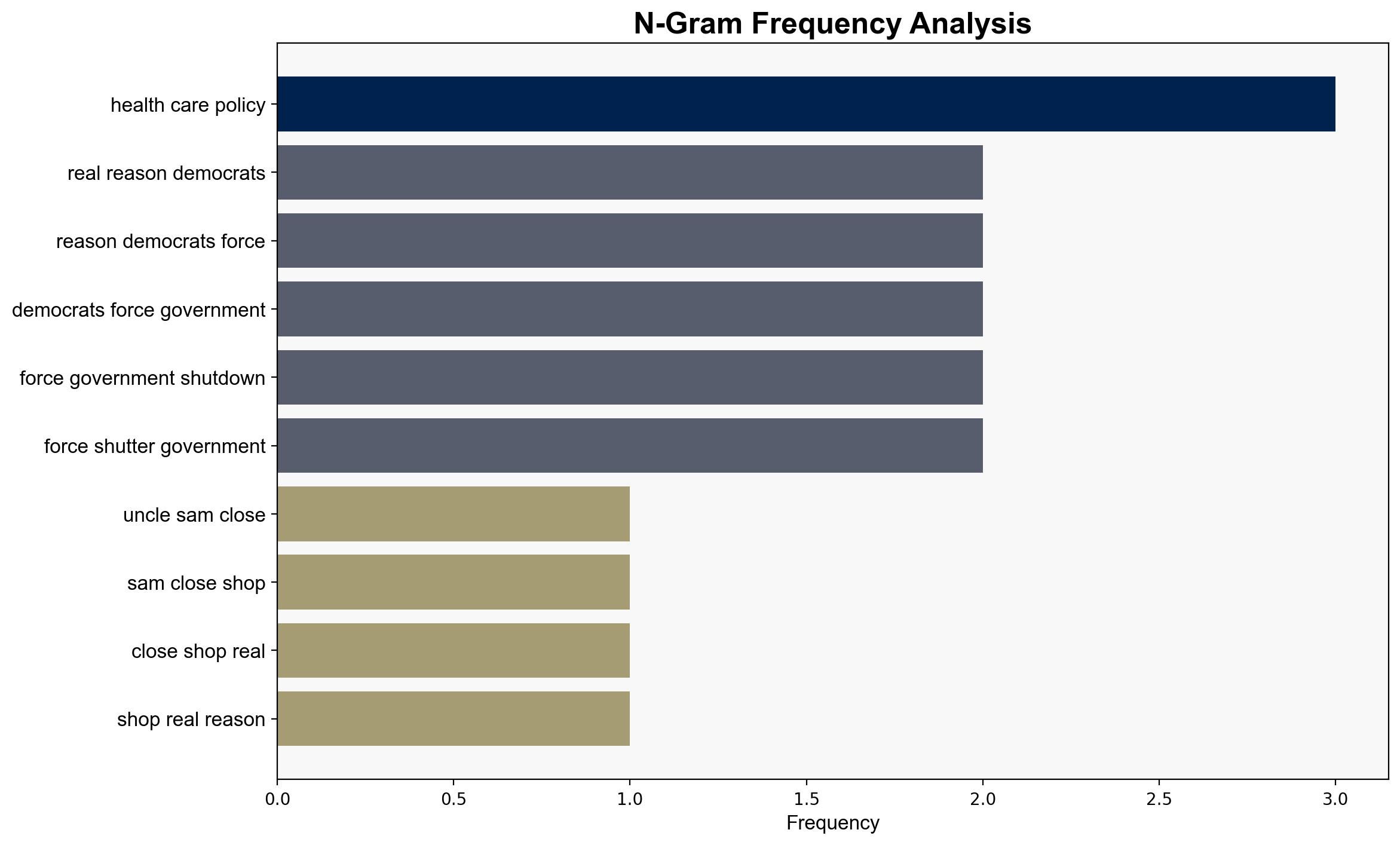The real reason Democrats forced a government shutdown – Vox
Published on: 2025-10-01
Intelligence Report: The real reason Democrats forced a government shutdown – Vox
1. BLUF (Bottom Line Up Front)
The most supported hypothesis is that the Democrats forced a government shutdown as a strategic maneuver to leverage negotiations on healthcare policies and to counter perceived authoritarian actions by the Trump administration. Confidence in this assessment is moderate due to the complexity of political motivations and the potential for partisan bias in the source material. Recommended action includes monitoring further political negotiations and preparing for potential economic impacts of prolonged government shutdowns.
2. Competing Hypotheses
1. **Healthcare Policy Leverage Hypothesis**: Democrats initiated the shutdown to force negotiations on healthcare policies, specifically to extend the Affordable Care Act, enhance health insurance subsidies, and reverse Medicaid cuts.
2. **Political Resistance Hypothesis**: The shutdown was a strategic act of resistance against the Trump administration’s perceived authoritarian tendencies, aiming to rally the Democratic base and counteract Republican policies.
Using ACH 2.0, the Healthcare Policy Leverage Hypothesis is better supported due to specific references to policy objectives in the source text. However, the Political Resistance Hypothesis is also plausible given the broader context of political dynamics and voter sentiment.
3. Key Assumptions and Red Flags
– **Assumptions**: It is assumed that Democrats have sufficient political capital to leverage a shutdown effectively and that their actions are primarily motivated by policy objectives rather than political theater.
– **Red Flags**: The source may exhibit partisan bias, potentially overstating the authoritarian threat posed by the Trump administration. The lack of direct evidence linking the shutdown to specific policy outcomes is a critical gap.
– **Blind Spots**: The analysis may overlook internal Democratic Party dynamics or external pressures from donors and activists influencing the decision to shut down the government.
4. Implications and Strategic Risks
– **Economic Impact**: Prolonged shutdowns could slow economic growth, disrupt government services, and affect federal workers’ livelihoods.
– **Political Polarization**: The shutdown may exacerbate partisan divides, leading to increased political instability and decreased public trust in government institutions.
– **Geopolitical Risks**: Domestic political turmoil could weaken the U.S.’s international standing and embolden adversaries to exploit perceived vulnerabilities.
5. Recommendations and Outlook
- Monitor ongoing negotiations and public statements from key political figures to assess shifts in strategy or policy objectives.
- Prepare contingency plans for economic disruptions, including support measures for affected federal workers and critical services.
- Scenario Projections:
- **Best Case**: Quick resolution of the shutdown with favorable policy outcomes for Democrats.
- **Worst Case**: Prolonged shutdown leading to significant economic and political fallout.
- **Most Likely**: Short-term resolution with minimal policy changes, maintaining the status quo.
6. Key Individuals and Entities
– Donald Trump
– Chuck Schumer
7. Thematic Tags
national security threats, political strategy, healthcare policy, government shutdown





